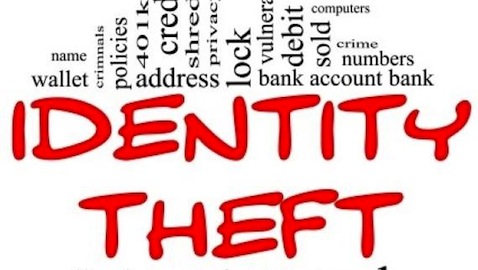Citrus County Sheriff’s Office
 Identity theft happens when a criminal steals your personal information to commit fraud.
Identity theft happens when a criminal steals your personal information to commit fraud.
Some signs that indicate you could be affected by ID theft include bills for items you didn’t buy, debt collections for accounts you didn’t open, or denials for a line of credit.
And the worst part about this crime, is it can happen to anyone – from children to seniors, ANYWHERE.
According to the U.S. Government Services and Information, to keep safe and protect yourself from identity theft:
• Secure your Social Security number (SSN). Don’t carry your Social Security card in your wallet. Only give out your SSN when necessary.
• Don’t share personal information (birthdate, Social Security number, or bank account number) because someone asks for it.
• Review your credit card and bank account statements. Compare receipts with account statements. Watch for unauthorized transactions.
•Shred receipts, credit offers, account statements, and expired credit cards. This can prevent “dumpster divers” from getting your personal information.
• Create complex passwords that identity thieves cannot guess. Change your passwords if a company that you do business with has a breach of its databases
• Review your credit reports once a year. Be certain that they don’t include accounts that you have not opened. You can order it for free from Annualcreditreport.com.
If you become a victim of identity theft, report it to the Federal Trade Commission (FTC) online at IdentityTheft.gov or by phone at 1-877-438-4338.
Identity theft happens when a criminal steals your personal information to commit fraud.
Some signs that indicate you could be affected by ID theft include bills for items you didn’t buy, debt collections for accounts you didn’t open, or denials for a line of credit.
And the worst part about this crime, is it can happen to anyone – from children to seniors, ANYWHERE.
According to the U.S. Government Services and Information, to keep safe and protect yourself from identity theft:
• Secure your Social Security number (SSN). Don’t carry your Social Security card in your wallet. Only give out your SSN when necessary.
• Don’t share personal information (birthdate, Social Security number, or bank account number) because someone asks for it.
• Review your credit card and bank account statements. Compare receipts with account statements. Watch for unauthorized transactions.
•Shred receipts, credit offers, account statements, and expired credit cards. This can prevent “dumpster divers” from getting your personal information.
• Create complex passwords that identity thieves cannot guess. Change your passwords if a company that you do business with has a breach of its databases
• Review your credit reports once a year. Be certain that they don’t include accounts that you have not opened. You can order it for free from Annualcreditreport.com.
If you become a victim of identity theft, report it to the Federal Trade Commission (FTC) online at IdentityTheft.gov or by phone at 1-877-438-4338.
